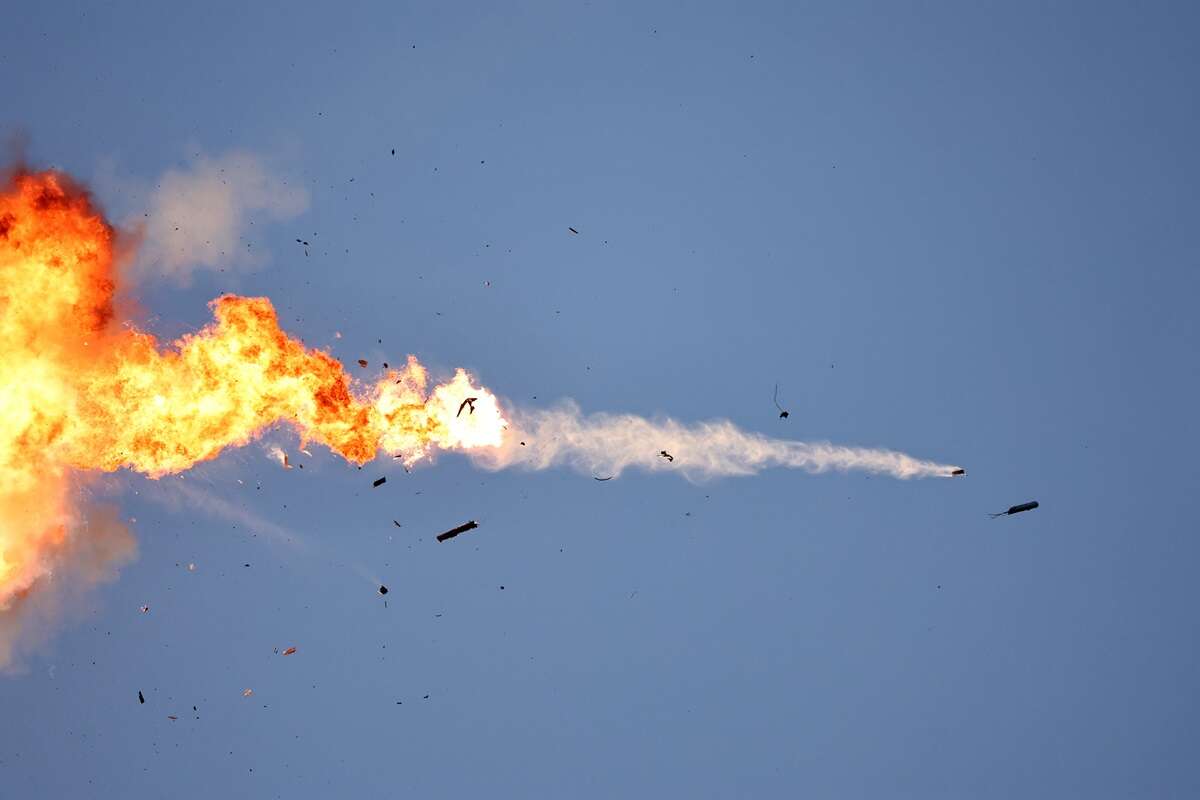Israel squandered a golden opportunity to change reality
While Israel knew that Hezbollah was planning a broad military move, it chose an essentially defensive action – removing the threat of the specific attack aimed against it, without any significant additional objectives.
Roni Eitan and Makor Rishon
Israel Hayom
Aug 25, 2024
Israeli strikes hit southern Lebanon on Sunday, August 25.
Let's start with the positive. Israel's preemptive strike carried out in the early morning hours is impressive by any measure. With high-quality intelligence and exceptional execution, Israel prevented a significant Hezbollah attack that, according to reports, was aimed at strategic facilities and central Israel. The strike was far more impressive, by any standard, than Operation Specific Weight, which destroyed Hezbollah's long-range rockets at the start of the Second Lebanon War. It's hard to believe that this is how Hezbollah envisioned their retaliation, and we must not underestimate what has been accomplished.
 Hezbollah
unmanned aerial vehicle (UAV) crossing from Lebanon gets intercepted by
an Israeli fighter jet over an area near the Lebanon-Israel border, as
seen from northern Israel, 25 August 2024
Hezbollah
unmanned aerial vehicle (UAV) crossing from Lebanon gets intercepted by
an Israeli fighter jet over an area near the Lebanon-Israel border, as
seen from northern Israel, 25 August 2024
However, there's another side to the picture, which is far less encouraging. While Israel knew that Hezbollah was planning a broad military move, it chose an essentially defensive action – removing the threat of the specific attack aimed against it, without any significant additional objectives. Israel then returned to a waiting position for Hezbollah's response, while issuing threats that the organization would not dare to expand its attacks.
This brings us to the point – Israel has one opportunity for a surprising initiative that includes a devastating blow, attacking thousands of targets simultaneously. The Israeli Air Force has been training for this for years. The plans exist. What we saw this morning is not an opening move; it's a move designed to thwart a specific attack. The State of Israel decided to take the surprising move it was capable of executing, reduce it by two orders of magnitude from its capabilities, and focus only on tactical strikes. Extensive, impressive, including amazing intelligence, but tactical strikes nonetheless.
At this stage, it seems that Israel faces two options, both of them bad: a. Deterioration into an escalation dynamic that will lead to a full-scale war, with the possibility of a reality-changing opening blow already denied. b. A reality of a few days of combat (and as it appears now, perhaps hours) that will end in a return to the previous situation, after which Israel will somehow need to accumulate internal and external legitimacy for another major move to change the reality in the north.
This is not a semantic issue. An opening blow can decide a war. The Six-Day War is entirely a continuation of the dynamics created in Operation Focus, in which the IDF destroyed most of the Egyptian Air Force. Closer to our time, and on a smaller scale, one can recall the difference between the results of Operation Cast Lead, which opened with a broad move, compared to Operation Protective Edge, which started with a deterioration dynamic. On the other side of the equation, consider the shock caused to Israel and the IDF by Hamas' surprise attack, an organization weaker than it in several respects, from which Israel has not yet fully recovered in some ways.
It's too early to know the full picture, especially when we're not sitting in the Israeli Air Force's command center. But an attack on hundreds of targets, if one is familiar with the fire capabilities developed in the IDF in recent years (by the way, at the expense of other IDF arms), is not an opening blow and not an attempt to change reality. It's an attempt to maintain the status quo in the north, and the status quo in the north over the past 10 months is the worst of all worlds. The IDF thwarted a specific Hezbollah attack, and for that, it deserves all the credit. But along with this thwarting, this could have been combined with a much broader strike on strategic assets of Hezbollah and the state of Lebanon – not just attacking the ball and the weapon without hitting the shooter.
The State of Israel has become the world champion in partial solutions, which often lead it to the worst of all worlds – both achieving small goals by their very nature, and, in many cases, bringing about what they feared, in this case, perhaps a war in the north. We had the opportunity to use the inherent legitimacy that exists in thwarting an immediate attack to show a change of direction. A paradigm shift. Unfortunately, as it appears this morning, we decided to continue playing within the rules. Maybe in an expanded edition, with some new rules, but within the rules. Even if we decide to change them from now on, we may have wasted the best opportunity.

No comments:
Post a Comment